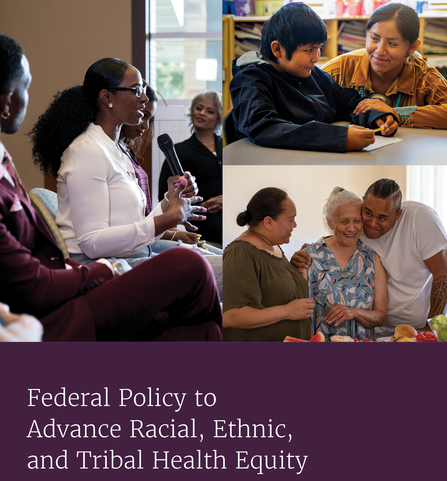 To improve health equity in the United States, the president should create a permanent federal body responsible for improving racial, ethnic, and tribal equity across the federal government, according to a new report from the National Academies of Sciences, Engineering, and Medicine. In addition, Congress should create a new scorecard to assess how all proposed federal legislation might impact health equity in the future. The report also recommends federal agencies conduct an equity audit of their current policies.
To improve health equity in the United States, the president should create a permanent federal body responsible for improving racial, ethnic, and tribal equity across the federal government, according to a new report from the National Academies of Sciences, Engineering, and Medicine. In addition, Congress should create a new scorecard to assess how all proposed federal legislation might impact health equity in the future. The report also recommends federal agencies conduct an equity audit of their current policies.
Racial, ethnic, and tribal health inequity in the U.S. is widespread and persistent, and federal policy can play a role in reducing health inequities, the report says. Education, income, health care access, and neighborhoods — and the policies that shape them — can all contribute to either hindering or advancing health equity.
The NASEM report, Federal Policy to Advance Racial, Ethnic, and Tribal Health Equity, reviews the impact of economic, education, health care, infrastructure, housing, public safety, and other policies on health equity, focusing on policies that affect a large percentage of minoritized communities — including historical policies that continue to cause harm. The report found increases to the federal minimum wage and closing achievement gaps through federal spending on education, for example, can both improve health equity. Medicaid and the Children’s Health Insurance Program are the most important federal policies that address racial and ethnic inequities in access to health care, according to the report.
“The report shed light on many of the barriers to health equity,” said Megan D. Douglas, committee member and associate professor at the Morehouse School of Medicine in Atlanta. “For example, the report recommends that community voice be incorporated into the policymaking process, which aligns with our history of strong community engagement to advance health equity.”
Recommendations also address collecting more accurate and complete population data for minoritized communities, improving coordination among federal agencies, supporting better inclusion of community input, and increasing federal support and access for state and local programs.

